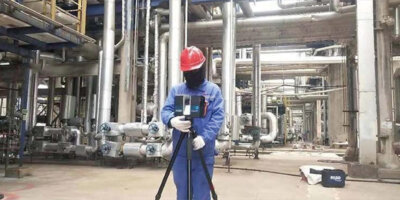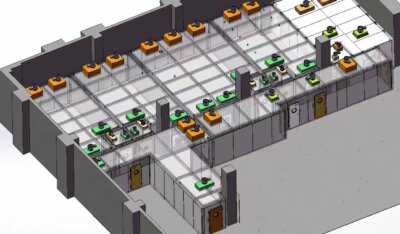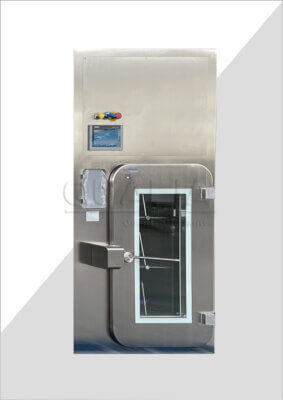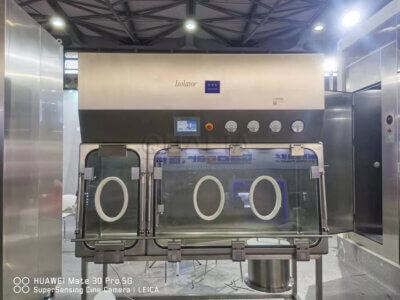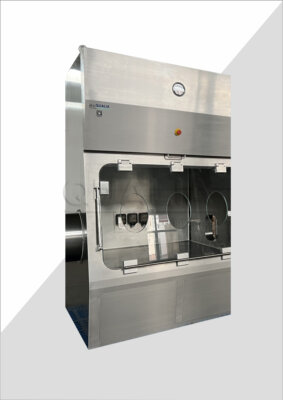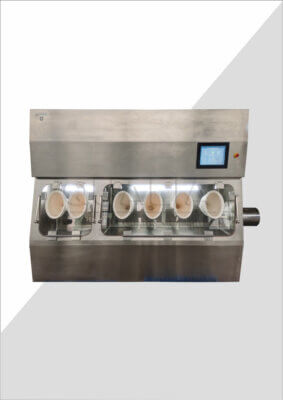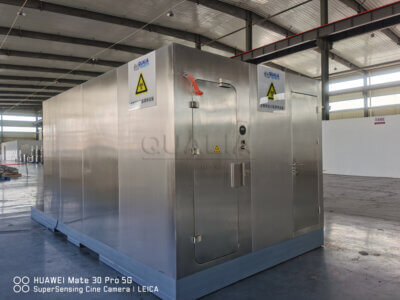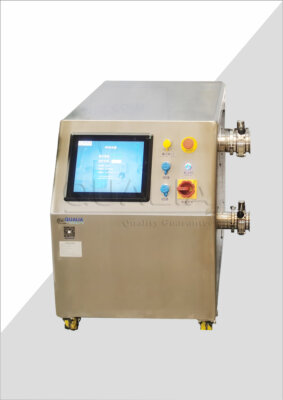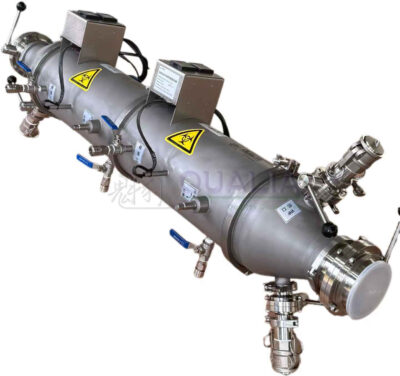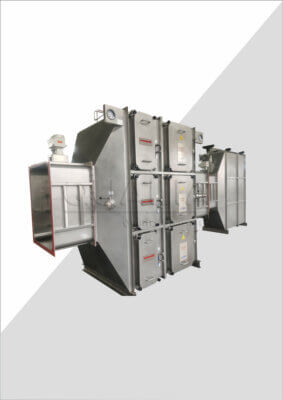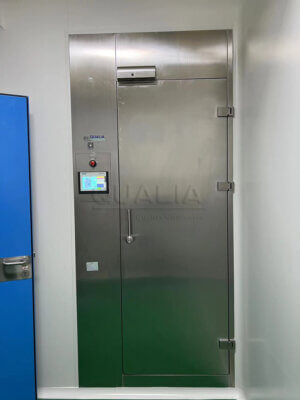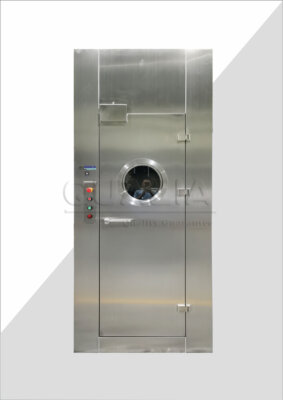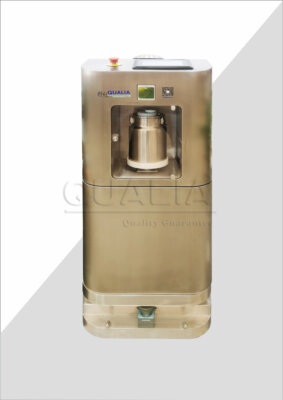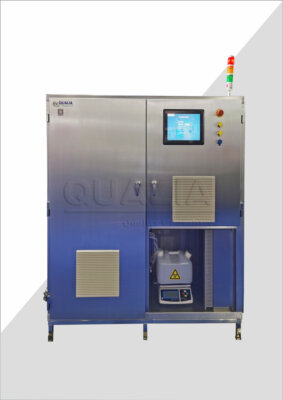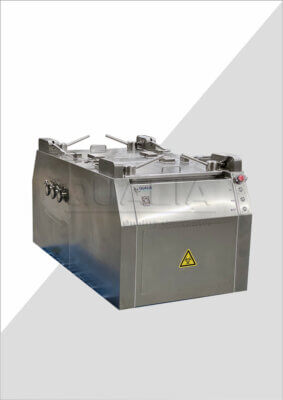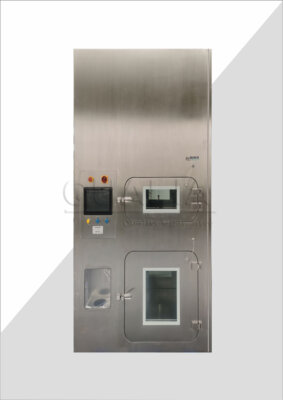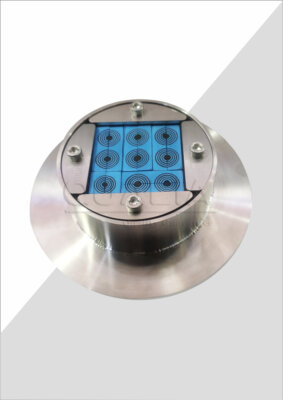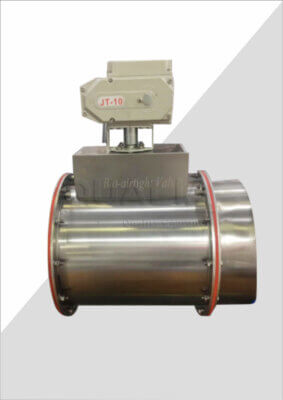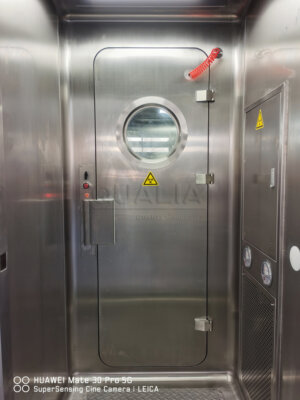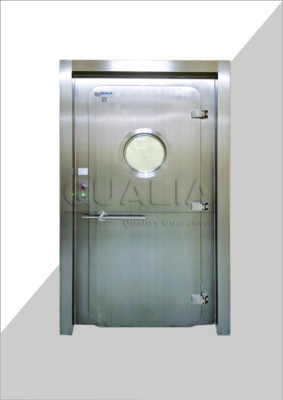As we approach 2025, the pharmaceutical industry continues to evolve rapidly, with turnkey projects becoming increasingly complex and time-sensitive. Effective timeline management has never been more crucial for ensuring the success of these intricate endeavors. This article delves into the nuances of timeline management for pharma turnkey projects, exploring innovative strategies, cutting-edge tools, and best practices that will define the industry landscape in 2025.
The pharmaceutical sector is witnessing a paradigm shift in project execution, driven by advancements in technology, changing regulatory landscapes, and the growing demand for faster drug development cycles. Timeline management has emerged as a critical factor in navigating these challenges, enabling companies to optimize resources, mitigate risks, and bring life-saving medications to market more efficiently.
As we transition into the main content of this article, we'll explore the multifaceted aspects of timeline management in the context of pharma turnkey projects. From leveraging artificial intelligence for predictive scheduling to implementing agile methodologies in traditionally rigid environments, we'll uncover the strategies that will shape the industry's future.
"Effective timeline management in pharma turnkey projects is not just about meeting deadlines; it's about orchestrating a symphony of interdependent processes to deliver groundbreaking therapies to patients faster and more efficiently than ever before."
How is AI Revolutionizing Timeline Prediction in Pharma Projects?
Artificial Intelligence (AI) is transforming the landscape of timeline management in pharmaceutical turnkey projects. By analyzing vast amounts of historical data and real-time project information, AI algorithms can predict potential bottlenecks and suggest optimal timelines with unprecedented accuracy.
These AI-powered systems are capable of learning from past projects, considering factors such as resource availability, regulatory changes, and supply chain dynamics to provide more realistic and adaptive timelines. This predictive capability allows project managers to proactively address issues before they escalate, ensuring smoother project execution.
Moreover, AI's ability to process and interpret complex data sets enables it to identify patterns and correlations that might escape human observation. This leads to more informed decision-making and strategic planning throughout the project lifecycle.
"AI-driven timeline management tools are projected to reduce project delays by up to 30% in pharma turnkey projects by 2025, significantly accelerating the drug development process."
| AI Impact on Timeline Management | |
|---|---|
| Reduction in Project Delays | Up to 30% |
| Improvement in Timeline Accuracy | 25-40% |
| Time Saved in Planning Phase | 15-20% |
In conclusion, the integration of AI into timeline management for pharma turnkey projects is not just an enhancement but a revolutionary step. It promises to bring unprecedented precision, adaptability, and efficiency to project timelines, ultimately benefiting both the industry and patients awaiting new treatments.
What Role Will Agile Methodologies Play in Pharma Project Timelines?
Agile methodologies, traditionally associated with software development, are making significant inroads into pharmaceutical project management. As we look towards 2025, these flexible and iterative approaches are set to redefine how timelines are managed in pharma turnkey projects.
The adoption of Agile in pharma projects allows for greater adaptability to changing requirements and unforeseen challenges. By breaking down large projects into smaller, manageable sprints, teams can continuously reassess and adjust timelines, ensuring that the project remains on track despite the dynamic nature of drug development.
This shift towards Agile is particularly beneficial in managing the complex interdependencies inherent in pharma turnkey projects. It facilitates better communication among diverse teams, from research and development to regulatory affairs and manufacturing, allowing for real-time adjustments to timelines based on progress and emerging data.
"By 2025, over 60% of pharmaceutical companies are expected to incorporate Agile methodologies in their turnkey projects, resulting in a 25% reduction in time-to-market for new drugs."
| Agile Adoption in Pharma Projects | |
|---|---|
| Expected Adoption Rate by 2025 | Over 60% |
| Reduction in Time-to-Market | 25% |
| Increase in Project Success Rate | 35% |
In conclusion, the integration of Agile methodologies into pharma project timeline management represents a paradigm shift in the industry. It promises to bring much-needed flexibility and efficiency to the traditionally rigid and lengthy drug development process, ultimately accelerating the delivery of innovative therapies to patients.
How Can Digital Twin Technology Enhance Timeline Accuracy?
Digital Twin technology is emerging as a game-changer in timeline management for pharma turnkey projects. By creating virtual replicas of physical processes and systems, Digital Twins allow project managers to simulate and optimize timelines with unprecedented accuracy.
This technology enables real-time monitoring and analysis of project progress, providing insights that can help identify potential delays or bottlenecks before they occur. By running various scenarios in the virtual environment, project teams can make data-driven decisions to optimize timelines and resource allocation.
Furthermore, Digital Twins facilitate better collaboration among stakeholders by providing a shared, interactive platform for visualizing project timelines and interdependencies. This enhanced visibility leads to more accurate planning and faster problem-solving.
"Implementation of Digital Twin technology in pharma turnkey projects is expected to improve timeline accuracy by up to 40% and reduce overall project duration by 15-20% by 2025."
| Digital Twin Impact on Timelines | |
|---|---|
| Improvement in Timeline Accuracy | Up to 40% |
| Reduction in Project Duration | 15-20% |
| Increase in Resource Efficiency | 25-30% |
In conclusion, Digital Twin technology represents a significant leap forward in timeline management for pharma turnkey projects. Its ability to provide accurate simulations, real-time insights, and enhanced collaboration tools makes it an invaluable asset for project managers striving for precision and efficiency in their timelines.
What Impact Will Blockchain Have on Timeline Transparency and Traceability?
Blockchain technology is set to revolutionize timeline management in pharma turnkey projects by enhancing transparency, traceability, and security. As we approach 2025, the implementation of blockchain in project management systems will provide an immutable record of all timeline-related activities and decisions.
This distributed ledger technology ensures that all stakeholders have access to real-time, accurate information about project timelines. It eliminates discrepancies in reporting and reduces the risk of delays caused by miscommunication or data inconsistencies.
Moreover, blockchain's inherent traceability features allow for detailed auditing of timeline changes and approvals. This capability is particularly valuable in the highly regulated pharmaceutical industry, where documentation and accountability are paramount.
"By 2025, blockchain integration in pharma turnkey projects is projected to reduce timeline-related disputes by 70% and improve overall project transparency by 50%."
| Blockchain Impact on Timelines | |
|---|---|
| Reduction in Timeline Disputes | 70% |
| Improvement in Transparency | 50% |
| Increase in Regulatory Compliance | 40% |
In conclusion, blockchain technology offers a transformative approach to timeline management in pharma turnkey projects. Its ability to provide unparalleled transparency, traceability, and security addresses some of the most pressing challenges in project timeline management, paving the way for more efficient and accountable project execution.
How Will IoT Sensors Revolutionize Real-Time Timeline Monitoring?
The Internet of Things (IoT) is set to play a pivotal role in timeline management for pharma turnkey projects by 2025. IoT sensors deployed across various stages of the project lifecycle will provide real-time data, enabling continuous monitoring and adjustment of timelines.
These sensors can track everything from equipment performance and environmental conditions to supply chain logistics and personnel movements. By collecting and analyzing this data in real-time, project managers can identify potential delays or inefficiencies as they occur, allowing for immediate corrective action.
Furthermore, the integration of IoT data with QUALIA project management platforms will enable predictive analytics, helping teams anticipate and prevent timeline disruptions before they materialize. This proactive approach to timeline management represents a significant leap forward in project efficiency and reliability.
"Implementation of IoT sensors in pharma turnkey projects is expected to reduce unexpected delays by up to 50% and improve overall timeline adherence by 35% by 2025."
| IoT Impact on Timeline Management | |
|---|---|
| Reduction in Unexpected Delays | Up to 50% |
| Improvement in Timeline Adherence | 35% |
| Increase in Real-Time Visibility | 80% |
In conclusion, the integration of IoT sensors into timeline management for pharma turnkey projects promises to bring unprecedented levels of real-time monitoring and control. This technology will enable project managers to maintain a pulse on every aspect of the project, ensuring timely completion and optimal resource utilization.
What Role Will Advanced Analytics Play in Optimizing Project Timelines?
Advanced analytics is poised to become an indispensable tool in timeline management for pharma turnkey projects by 2025. By leveraging big data, machine learning, and predictive modeling, project managers will be able to optimize timelines with a level of precision previously unattainable.
These analytical tools can process vast amounts of historical and real-time project data to identify patterns, trends, and potential risks that may impact timelines. By doing so, they enable more accurate forecasting and allow for proactive decision-making to keep projects on track.
Moreover, advanced analytics can facilitate scenario planning, allowing project teams to simulate various timeline scenarios and choose the most optimal path forward. This capability is particularly valuable in the complex and often unpredictable world of pharmaceutical development.
"By 2025, the use of advanced analytics in timeline management is expected to improve project completion rates by 40% and reduce timeline overruns by 30% in pharma turnkey projects."
| Impact of Advanced Analytics | |
|---|---|
| Improvement in Completion Rates | 40% |
| Reduction in Timeline Overruns | 30% |
| Increase in Forecast Accuracy | 50-60% |
In conclusion, advanced analytics represents a powerful tool for optimizing timeline management in pharma turnkey projects. Its ability to provide data-driven insights and predictive capabilities will enable project managers to navigate the complexities of pharmaceutical development with greater confidence and efficiency.
How Will Virtual Reality Transform Timeline Visualization and Management?
Virtual Reality (VR) technology is set to revolutionize timeline visualization and management in pharma turnkey projects by 2025. By creating immersive, three-dimensional representations of project timelines, VR will offer project teams a new way to interact with and understand complex project schedules.
This technology allows stakeholders to "walk through" the project timeline, visualizing dependencies, milestones, and potential bottlenecks in a highly intuitive manner. Such immersive experiences can lead to better decision-making and more effective timeline management.
Furthermore, VR can facilitate virtual collaboration among geographically dispersed team members, enabling them to meet in a shared virtual space to discuss and adjust timelines in real-time. This capability is particularly valuable in the increasingly globalized pharmaceutical industry.
"Adoption of VR in timeline management for pharma turnkey projects is projected to improve stakeholder understanding of project timelines by 70% and reduce timeline-related miscommunications by 50% by 2025."
| VR Impact on Timeline Management | |
|---|---|
| Improvement in Timeline Understanding | 70% |
| Reduction in Miscommunications | 50% |
| Increase in Collaborative Efficiency | 40% |
In conclusion, Virtual Reality offers a transformative approach to timeline visualization and management in pharma turnkey projects. By providing immersive, intuitive representations of project timelines, VR technology promises to enhance understanding, improve collaboration, and ultimately lead to more efficient project execution.
Conclusion
As we look towards 2025, it's clear that timeline management for pharma turnkey projects is undergoing a profound transformation. The integration of cutting-edge technologies such as AI, blockchain, IoT, and Virtual Reality, coupled with methodological shifts like the adoption of Agile practices, is reshaping how timelines are planned, monitored, and optimized.
These advancements promise to bring unprecedented levels of accuracy, transparency, and efficiency to timeline management. From AI-driven predictive analytics to immersive VR timeline visualizations, project managers will have a powerful arsenal of tools at their disposal to navigate the complexities of pharmaceutical development.
The Timeline Management capabilities offered by innovative platforms will play a crucial role in this evolution, enabling pharmaceutical companies to streamline their processes, reduce delays, and ultimately bring life-saving drugs to market faster.
As the industry continues to evolve, embracing these technological and methodological advancements will be key to staying competitive and meeting the growing demands for faster, more efficient drug development. The future of timeline management in pharma turnkey projects is not just about meeting deadlines; it's about revolutionizing the entire approach to project execution, paving the way for a new era of pharmaceutical innovation.
External Resources
Timeline management – (TV Writing) – Vocab, Definition, Explanations – This resource defines timeline management in the context of TV writing and project management, emphasizing the importance of planning, organizing, and controlling the sequence of events to ensure projects are completed on schedule.
10 Best Project Timeline Management Tools in 2024 – Teamhood – This article compares and reviews the top project timeline management tools, including Teamhood, Microsoft Project, Trello, Asana, and others, highlighting their features, pros, and cons.
Timeline Management – BRACKETS by TRIAD – This resource explains timeline management as a critical aspect of IT project management, focusing on planning, organizing, and controlling task sequences and durations to ensure projects are completed on time.
Free Online Timeline Maker – TeamGantt – This page introduces TeamGantt's online timeline maker, which allows users to create collaborative timelines easily. It highlights features such as drag-and-drop scheduling, task assignment, and real-time collaboration.
Project Management Timeline: A Step-by-Step Guide – This resource offers a detailed guide on how to create and manage project timelines, including setting up schedules, tracking progress, and adjusting for changes.
Best Practices for Effective Timeline Management – This link provides tips and best practices for managing timelines effectively, including setting realistic deadlines, allocating resources, and identifying potential bottlenecks.
Related Contents:
- Pharmaceutical Turnkey Projects: End-to-End Guide
- FDA Regulations for Pharma Turnkey Projects 2025
- Pharmaceutical Engineering: GMP Standards Guide 2025
- The Environmental Impact of Pharmaceutical Effluents: A Comprehensive Assessment
- Effluent Decontamination Systems: Safeguarding Pharmaceutical Waste Management
- EDS: Revolutionizing Laboratory Safety Protocols
- Revolutionizing Pharmaceutical Wastewater Treatment
- Unlocking Success: EDS Implementation in Biotech Manufacturing
- Revolutionizing Pharmaceutical Effluent Treatment: Emerging Technologies


